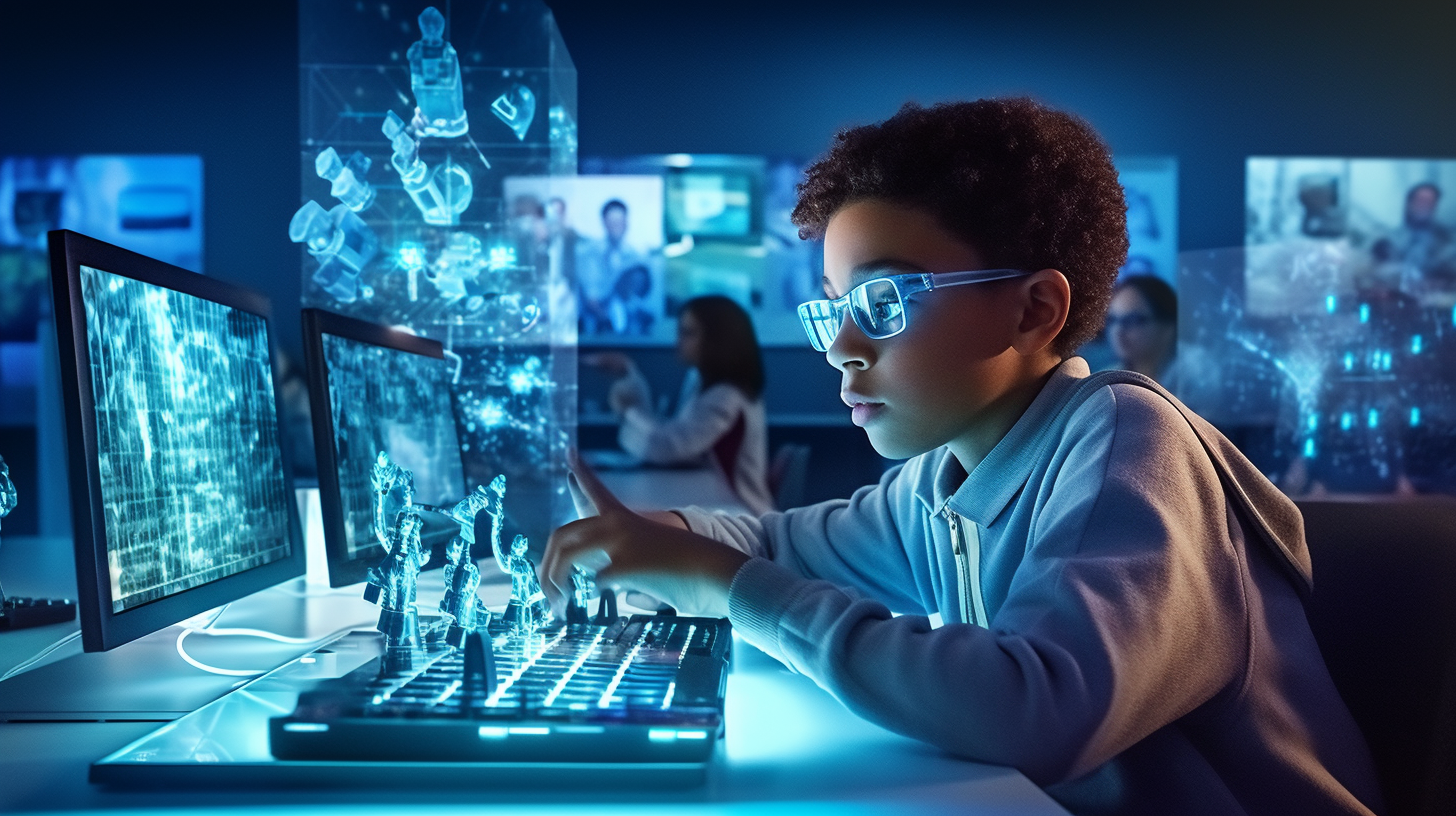In the rapidly evolving landscape of education technology, Artificial Intelligence (AI) is at the forefront, reshaping traditional teaching methods and personalizing the learning experience. Let's delve into the transformative impact of AI on education and explore how it's revolutionizing the way we teach and learn.
In classrooms worldwide, a silent revolution is underway, ushered in by the integration of Artificial Intelligence (AI) into education technology. This EduTech revolution is not just a technological upgrade; it's a paradigm shift that is redefining the entire learning experience.
Imagine a classroom where learning is no longer a one-size-fits-all approach but a dynamic, personalized journey for each student. AI algorithms analyze individual learning styles and strengths, enabling educators to craft lessons that resonate uniquely with each student. This adaptive approach not only fosters a more inclusive learning environment but also empowers students to progress at their own pace, nurturing a sense of autonomy and mastery.
Beyond the personalization of learning, AI is playing a pivotal role in data-driven decision-making for educators. By analyzing vast datasets, AI tools provide valuable insights, allowing educators to track student performance, identify areas needing attention, and predict those who may require additional support. This isn't just about crunching numbers; it's about ensuring that no student falls through the cracks.
Intelligent Tutoring Systems (ITS), powered by AI, act as virtual guides available around the clock. Whether it's mastering complex concepts or refining language skills, these virtual tutors ensure a dynamic and individualized learning journey. They adapt to each student's progress, providing targeted assistance and transforming the learning experience into a personalized and engaging process.
The impact of AI isn't confined to the classroom alone. It extends its reach into the realm of gamification, offering dynamic and adaptive educational games that respond to individual student progress. These games not only make learning enjoyable but also provide valuable insights into problem-solving skills and critical thinking abilities.
Moreover, AI is liberating educators from administrative hassles. Automated grading systems, attendance tracking, and chatbots handling routine inquiries are streamlining tasks, giving educators more time to focus on building meaningful connections with students and refining their teaching methods.
However, as we embrace this new era of AI in education, ethical considerations come to the forefront. Addressing issues like data privacy and algorithmic bias is crucial for responsible AI development in education. Striking a balance between technological innovation and ethical considerations ensures that AI enhances, rather than hinders, the learning experience.
In conclusion, the integration of Artificial Intelligence into education is not just a technological upgrade; it's a revolution that is redefining how we teach and learn. From personalized learning experiences to data-driven insights, AI is steering the course of educational evolution. As we venture into this new chapter, we envision a landscape where every student can thrive, learn at their own pace, and be equipped to face the challenges and opportunities of the future. The journey of AI in education continues, promising an enriched learning environment for students worldwide.


